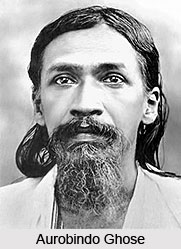 The political prisoners in Alipore Bomb Case were convicted, some of them to lifetime imprisonments. The Bengal government also forwarded a similar proposal for deporting them to the Andamans on the basis of the judgement, which desired to keep them away from the ordinary criminals who might get pervaded with the radical ideas. The Government of India accepted the proposal for the grounds that "the real ground for transporting them is the same, which was recognised as valid after the mutiny i.e., the desirability of getting them out of India".
The political prisoners in Alipore Bomb Case were convicted, some of them to lifetime imprisonments. The Bengal government also forwarded a similar proposal for deporting them to the Andamans on the basis of the judgement, which desired to keep them away from the ordinary criminals who might get pervaded with the radical ideas. The Government of India accepted the proposal for the grounds that "the real ground for transporting them is the same, which was recognised as valid after the mutiny i.e., the desirability of getting them out of India".
The Alipore Bomb Case (also known as Manicktola Conspiracy Case) judgement was announced on 6th April 1909, in which Barindra Kumar Ghose, Ullaskar Dutt, Upendra Nath Banerjee, Bibhooti Bhusan Ray, Hrishikesh Kanjilal and Birendra Chandra Sen, were sentenced to death and their property was impounded. Sudhir Kumar Sircar, Indra Nath Nandi, Abinash Chander Bhattacharjee, Salindra Nath Bose, Hem Chandra Dass, Indubhusan Roy and Paresh Chander Mullick were sentenced to transportation for life and forfeiture of property. Sisir Kumar Ghose, Nirapada Roy, Ashok Chander Nandy and Bal Krishan Hari Kane were sentenced to transportation for seven years. Sushil Kumar Sen and Krishto Jiban Sanyal were awarded rigorous imprisonment for one year each. Aurobindo Ghose and fifteen others were acquitted.
A group of young men led by Barindra Kumar Ghose (younger brother of Sri Aurobindo) had formed a Jugantar Party and carried on their mutinous activities in a garden house in Manicktola, in the eastern suburb of Calcutta. Bhupan Dutt (younger brother of Swami Vivekananda) and Ullaskar Dutt also joined in. Immediately after the bomb incident on 30th April 1908 in Muzaffarpur in Bihar, the police raided House No. 32. Muraripukar road at Manicktola and recovered heaps of inflammatory literature, loads of explosives, arms and ammunition, along with detailed written instructions on the techniques of manufacturing higher explosives. A case was registered known as Manicktola Conspiracy Case or Alipore Bomb Case. Approximately thirty people, including Aurobindo Ghose were arrested and they were committed for trial to the court of sessions judge, Beach craft, for conspiracy of waging war against the king. C.R. Das, a distinguished barrister, appeared for the defence while Norton was the prosecutor. The trial was held from 14th October 1908 to 4th March 1909. Barindra Kumar Ghose made a confessional statement taking up the complete responsibility and the judgement was announced on 6th May 1909. It was perhaps the first `criminal conspiracy` of high magnitude devised by the revolutionary youth to wage war against the British.
The appeal in the Alipore Bomb Case was decided by the chief justice and Justice Carnduff of the Calcutta high court on 23rd November 1909. The death sentence of Barindra Kumar Ghose, Ullaskar Dutt and Upendra Nath Banerjee was converted to transportation for life, while transportation for life of Hem Chandra Dass was maintained. The death sentence of Bibhooti Bhusan Roy (Sircar) and Hrishikesh Kanjilal and sentence of transportation for life of Indubhusan Roy were converted to transportation for ten years. The transportation for life of Sudhir Kumar Sircar, Abinash Chandra Bhattacharjee and Paresh Chandra Mullick was curtailed to seven years. Transportation for seven years to Sisir Kumar Ghose and Nirapada Roy was cut down to imprisonment for five years. Bal Krishan Hari Kane was acquitted, while Ashok Chander Nandy died during the pendency of appeal.
The third judge, Justice Harrington, awarded transportation for seven years to Birendra Chandra Sen and transportation for five years to Sailendra Nath Bose and acquitted Indra Nath Nandi, Sushil Kumar Sen and Krishto Jiban Sanyal, as the two previous judges disagreed in the case of these accused.
Barindra Kumar Ghose, Upendra Nath Banerjee, Hem Chandra Dass and Ullaskar Dutt, sentenced to transportation for life, Indubhusan Roy, Bibhooti Bhusan Sircar and Hrishikesh Kanjilal, sentenced to transportation for ten years and Sudhir Kumar Sircar, Abinash Chandra Bhattacharjee and Birendra Chandra Sen sentenced to transportation for seven years, were expatriated to the Andamans.






































